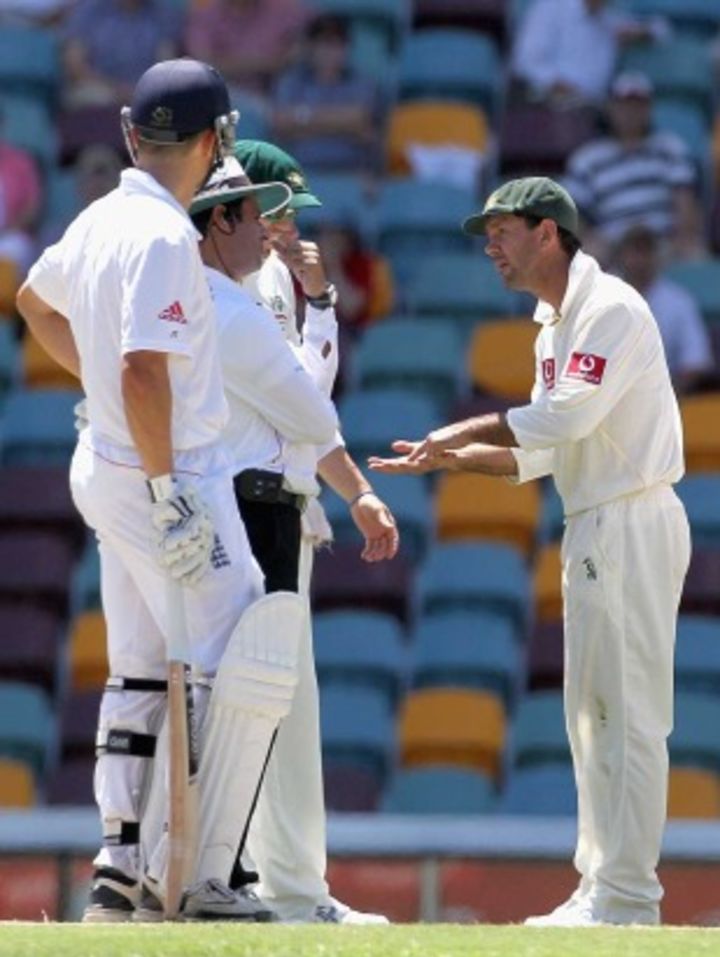MCC against third umpire for low catches
The MCC World Cricket Committee has said that disputed low catches shouldn't be sent to the third umpire for adjudication because TV cameras rarely make the situation any clearer

The MCC World Cricket Committee has said that disputed low catches shouldn't be sent to the third umpire for adjudication because TV cameras rarely make the situation any clearer. Under current regulations, the on-field officials can ask the third umpire to check if a ball has carried, but the two-dimensional pictures can often make it appear as though a ball has bounced when it's probably a clean catch.
Ricky Ponting, the Australia captain, has always been an advocate of such catches staying on the field and decisions being taken by the two standing umpires, while saying batsmen should also take the fielder's word. There was an example in the current Ashes series during the Brisbane Test when Alastair Cook, during his unbeaten 235, flicked the ball to short midwicket where Ponting claimed the catch but it was ruled not out on TV evidence.
The committee, which met in Perth ahead of the third Ashes Test, said when the UDRS was in use either side would be within their rights to use a review for such catches, but that the third umpire should only overrule the on-field decision with "overwhelming" evidence.
"The MCC World Cricket Committee believes that current technology used by third umpires does not provide definitive proof of low catches, and recommends that the on-field umpires must be asked to make an initial decision based on the naked eye," a statement said. "In games utilising the UDRS, if the batsman or fielding captain wishes to review the decision, he may do so at this point provided that he still has a review in hand.
"In assessing whether or not the ball carried, the third umpire should uphold the original decision unless there is overwhelming proof that the decision was incorrect. With so many examples proving inconclusive on television, the committee feels that the benefit of the doubt too often goes to the batsmen, who often now stand their ground for most low catches."
Andrew Strauss, the England captain, agreed that technology wasn't suitable for ruling on low catches but insisted that there could be no half measures when it comes to where a decision is made. "My view is that the umpires need to be consistent, whatever they do," he said. "If they want to make the decision themselves, I think that's a healthy situation - I agree the technology is flawed, in that respect. Where it becomes very messy is where they make the decision once, and then the next time they refer it. I'd be very supportive of them if they just made the decision consistently."
However, MCC didn't back Ponting's idea that the fielder's word should be taken and instead thought the onus should be on the two umpires in the middle. "The committee saw merit in Ricky Ponting's recent assertion that captains should all agree to take the fielder's word on low catches," the statement added. "However, it felt that such an agreement would be difficult to implement and consequently urges the ICC to direct the on-field umpires to make the decision."
Read in App
Elevate your reading experience on ESPNcricinfo App.